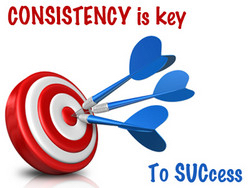How can a Home Activity Program support your special needs child with their on-going therapy?
Attending regular therapy sessions without implementing an on-going Home Activity Program is like taking piano lessons and NOT practising at home. Understandably, this could make it very difficult for your child to advance their skills and build on what they’ve learned.
When our children go to school, it’s normal for parents to expect them to have homework which provides the opportunity to practise and consolidate what they learned that day. The same goes for your child attending therapy sessions on a regular basis.
Would you expect that therapy sessions alone can ‘fix the problem’ or solve your child’s current challenges all on their own?
How then can an on-going Home Activity Program support your special needs child’s success with their therapy?
Let me explain.
During each block of therapy sessions, a large number of new movement skills beyond your child’s current abilities are introduced. The sensory and motor information of these new movements form neural pathways that require repetition for them to get ‘grooved’ into your child’s nervous system. Just like learning the keys of the piano.
For a young child to be able to retain these new movements, daily support with a Home Activity Program is highly recommended. This additional practice will help your child integrate and consolidate their new learning.
Any new movements not receiving additional practice could be lost.
Some parents might interpret this as a regression in their child’s abilities and attribute it to the ineffectiveness of the therapy they are receiving. But this could simply point to the fact that their child requires more support with additional home practice to integrate their new learning.
The beauty of our nervous system is that these repetitions do not need to be exact. In fact, the more variations you are able to build around a particular activity for your child, the easier it will be for your child to master it as more information is being provided to their nervous system. (Remember variation?)
Children who are fairly active and already have good access to a variety of ‘movement vocabulary’ are more likely to continue to make progress on their own.
Children with less voluntary or intentional movement will need additional, focused support from their parents and caregivers to help them feel movement in a way that would not otherwise be available to them. It’s especially important for these children to receive the support of a daily Home Activity Program to keep them on track with their specific learning process.
As you can see, a Home Activity Program along with on-going therapy is highly beneficial to the success of your special needs child. As Sam Snead, one of the top World Champion golfers for over 4 decades said, “Practice puts brains in your muscles.”

